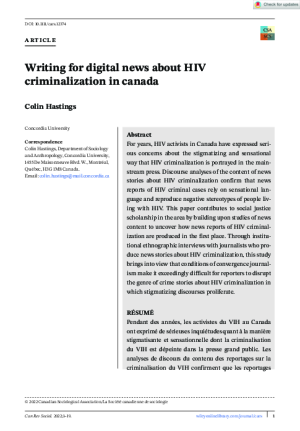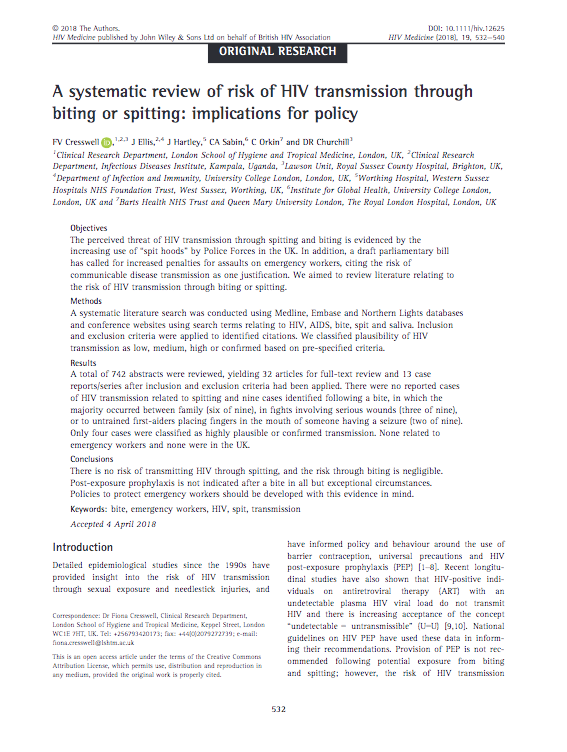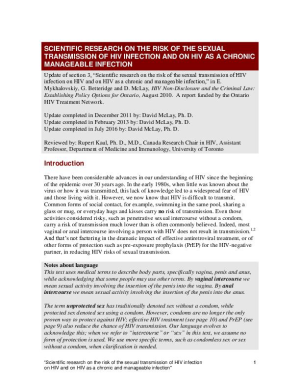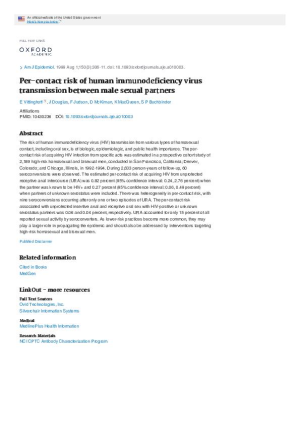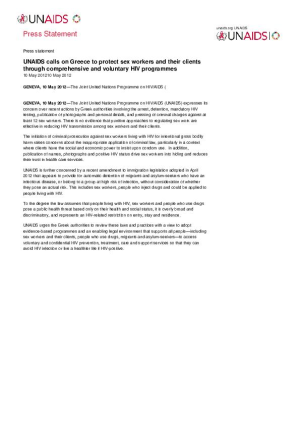Community Insights in Phylogenetic HIV Research: The CIPHR Project Protocol
Protocol for engaging community activists living in Nairobi, Kenya in a knowledge exchange process: Drawing upon a community-based participatory approach, the CIPHR project will (1) explore the possibilities and limitations of HIV molecular epidemiology for key population programmes, (2) pilot a community-based HIV molecular study, and (3) co-develop policy guidelines on conducting ethically safe HIV molecular epidemiology. Critical dialogue with activist communities will offer insight into the potential uses and abuses of using such information to sharpen HIV prevention programmes. The outcome of this process holds importance to the development of policy frameworks that will guide the next generation of the global response.
A Call to End HIV Criminalisation in Zimbabwe – Policy Brief
The Brief explains the concept of “HIV criminalisation” and the HIV-related criminal law in Zimbabwe. It describes why it is necessary for the law to be reformed, including why the law violates human rights and is outdated in the light of compelling scientific developments.
The risk of sexual transmission of HIV in individuals with low-level HIV viraemia: a systematic review
The risk of sexual transmission of HIV from individuals with low-level HIV viraemia receiving antiretroviral therapy (ART) has important public health implications, especially in resource-limited settings that use alternatives to plasma-based viral load testing. This Article summarises the evidence related to sexual transmission of HIV at varying HIV viral load levels to inform messaging for people living with HIV, their partners, their health-care providers, and the wider public.
Writing for digital news about HIV criminalization in Canada
This study examines the production of Canadian news media stories about HIV criminalization. Through institutional ethnographic interviews with journalists who produce news stories about HIV criminalization, this study brings into view that conditions of convergence journalism make it exceedingly difficult for reporters to disrupt the genre of crime stories about HIV criminalization in which stigmatizing discourses proliferate.
A systematic review of risk of HIV transmission through biting or spitting: implications for policy
A systematic literature search was conducted using Medline, Embase and Northern Lights databases and conference websites. Results showed that there was no risk of transmitting HIV through spitting, and the risk through biting was negligible. Post‐exposure prophylaxis was not indicated after a bite in all but exceptional circumstances. Policies to protect emergency workers should be developed with this evidence in mind.
- Alternative links
- Español (Traducción automática), Français (Traduction automatisée)
Scientific research on the risk of the sexual transmission of HIV infection and on HIV as a chronic manageable infection
Explains HIV transmission risk with reference to numerous studies, including a chart summarising per-act risk estimates for transmission of HIV during different types of sexual intercourse.
(update of original chapter in E. Mykhalovskiy, G. Betteridge and D. McLay, HIV Non-Disclosure and the Criminal Law: Establishing Policy Options for Ontario)
Per-contact risk of human immunodeficiency virus transmission between male sexual partners
Reports on follow up from prospective cohort study of gay and bisexual men. Findings include estimates of risk from unprotected anal intercourse and oral sex.
UNAIDS calls on Greece to protect sex workers and their clients through comprehensive and voluntary HIV programmes
UNAIDS expresses its concerns about the Greek Government’s treatment of alleged sex workers and also asylum seekers who may have an infectious disease.
- Alternative links
- French / Français, Russian / РУССКИЙ , Spanish / Español,


